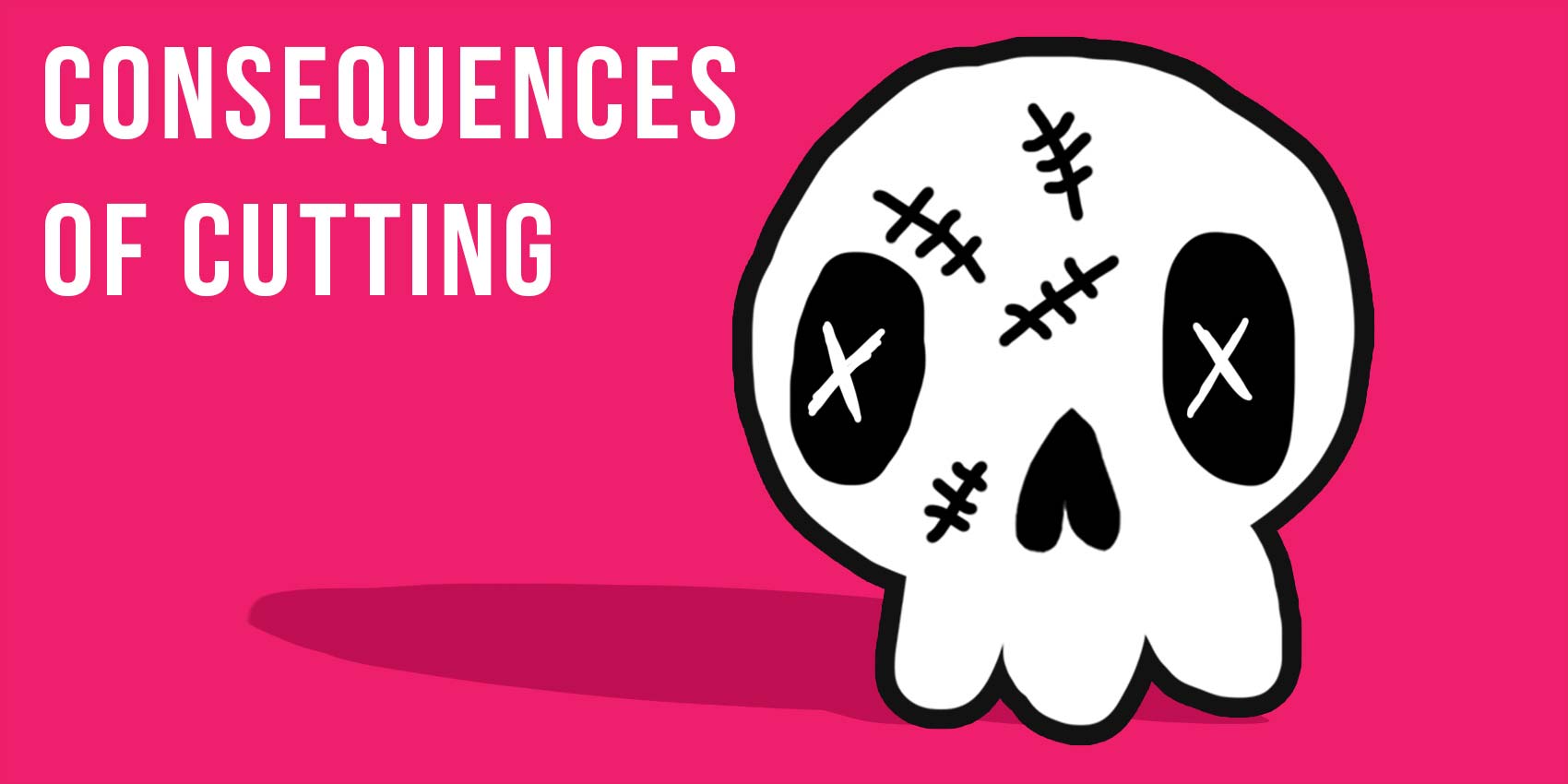08 Feb Consequences of cutting

Remember that when we don’t express feelings, they bottle up (for more info on that, check out our what is mental health post and read how emotions are like a bottle of soda pop). If you cut, bottled up emotions may be part of the reason. But cutting is a short-term solution that has some potentially serious long term consequences such as:
*shame and guilt: most people who self-harm are left with feelings of shame about it
* hiding your actions from friends and family can distance you from them
* you can cut too deeply and risk death
* any time you cut you risk infection
* people who cut are more likely to struggle with or eventually struggle with depression, substance abuse and suicide.
- SELF-HARM IS ADDICTIVE. You may feel like you have control when you cut, but it quickly turns into something you feel like you have to do. Then, it is controlling you.
This last point is very important: when you cut you release chemicals in the brain called endorphins that make you momentarily feel better. You then begin to believe that cutting makes you feel better: You associate cutting with the release of endorphins and the temporary easement of emotional pain. Your mind is “faked” into believing that cutting is helping you. Thus, when a situation arises that makes you feel like you want to cut, you believe that cutting is something that helps and indeed, eventually, something that you need to do.
But, cutting isn’t really helping you in the long run because it is not getting to the heart of the matter. The heart of the matter is the underlying emotion (or emotions) causing you pain. Let’s look at those in the next post.




WLKHS1211
Posted at 14:30h, 07 OctoberPeople could have been hurt emotionally or mentally, and take it out in a physical way. They do this to try to cope with the pain.